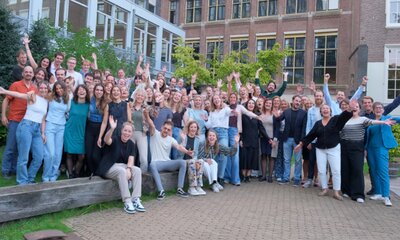Soil health on the spot
According to the scientific evidence collected by the European Commission, about 60 to 70% of soils in the EU are currently in an unhealthy state and all Member States are facing the problem of soil degradation. This creates risks for human health, the environment, climate, economy, and society, including risks for food security, water quality, increased impacts from flooding and droughts, biomass production, carbon emissions, and a loss of biodiversity. Since 95% of our food is directly or indirectly produced on this precious finite natural resource, soil degradation has a direct impact on food security and the cross-border food markets. In addition, soil degradation affects the potential long-term fertility of agricultural soils. It is estimated that between 61% and 73% of agricultural soils in the EU is affected by erosion, loss of organic carbon, nutrient (nitrogen) exceedances, compaction, or secondary salinization (or a combination of these threats).
The proposal
On the 5th of July, the EC adopted a comprehensive package of measures to promote the sustainable use of key natural resources, with a particular focus on enhancing EU food systems and farming. The package includes several initiatives and proposals aimed at achieving long-term economic, social, health, and environmental benefits. One of the proposals –next to the one on New Genomic Techniques which you can read about here– is the EU Soil Monitoring and Resilience Directive.
The objective of the Directive, according to its Article 1, is to put in place a solid and coherent soil monitoring framework for all soils across the EU and to continuously improve soil health in the Union with the view to achieve healthy soils by 2050 and maintain soils in healthy condition, so that they can supply multiple ecosystem services at a scale sufficient to meet environmental, societal and economic needs, prevent and mitigate the impacts of climate change and biodiversity loss, increase the resilience against natural disasters and for food security and that soil contamination is reduced to levels no longer considered harmful to human health and the environment.
As ambitious as this may sound, the proposal was criticized by several MEPs during the first exchange of views that took place in the European Parliament. The main measure in the proposal is the establishment of a soil health monitoring mechanism, which is insufficient in the eyes of the Greens and other groups in the chamber. Another point of criticism is the lack of new specific funds allocated to the tasks to be performed.
Next steps
In the EP, the Committee on the Environment, Public Health and Food Safety (ENVI) will lead the report in the EP and the Committee on Agriculture and Rural Development (AGRI) is expected to present its opinion together with Committees on Regional Development (REGI), and Legal Affairs (JURI). Following the intense debates surrounding the NRL, it is to be expected that this report will also receive considerable attention. It will be interesting to see to what extent the co-legislators make progress in defining their positions before the European elections in June 2024.
How we can help you
At Schuttelaar & Partners, we are closely following the developments of these legislative proposals and the impact that they will bring to the agri-food sector across Europe over the next few months and years. The release of the proposals is not the end of the line, but rather a new beginning from which we can help shape progress over time. The new soil health law will have an impact on the way soils are managed all across the EU. Although the 2024 election is around the corner, we do expect efforts to be made to progress the legislative process before then. We are experts in telling the story of our clients and in analyzing the impact that new legislative proposals can have on their strategies. We are able to provide our expert knowledge in this field to help companies stay up to date, for example through close monitoring, engagement with stakeholders, organization of workshops, elaboration of executive summaries, or tailor-made master classes.










